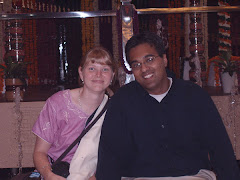After reading the
article, post your answers to the following questions by Friday, date at 11:59pm.
- List three reasons why Crick and Watson were not the best scientists for the job.
- What three things helped Watson and Crick in their discovery?
- Why do you think the other scientists (the men) did not like Rosalind Franklin? (You should also read the inset, "Mystery Woman.")
- What was the crucial piece of information that was found by Fraklin but eventually turned over to Wilkins to study?
- What vital piece of information did Chargaff discover, and at what about Watson and Crick was he appalled?
- Do you think Rosalind Franklin would have/should have received a Nobel prize if she had lived? Remember, Nobel prizes are not awarded posthumously, and she had died from ovarian cancer four years before Watson, Crick, and Wilkins were awarded the honor. Are there other ways to honor her contribution to our understanding of the structure of DNA?
After you have posted your thoughts, read and respond to at least one other student's post by Sunday, date at 11:59pm.
